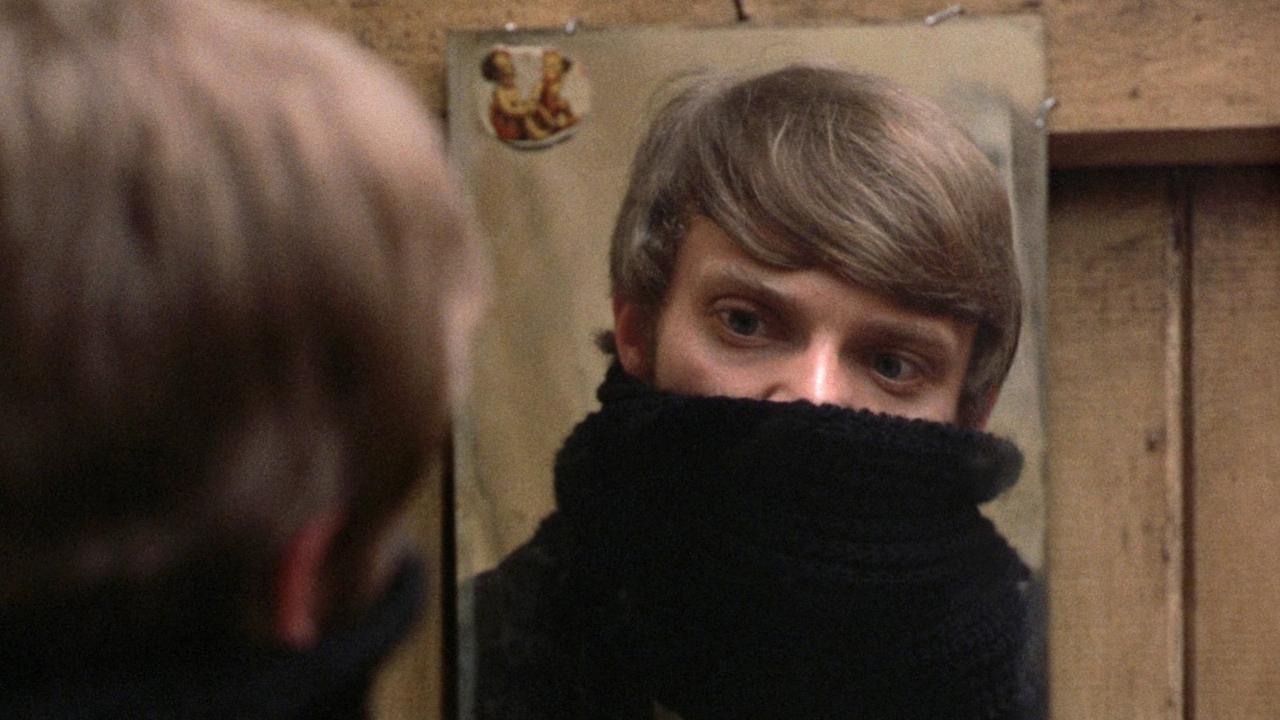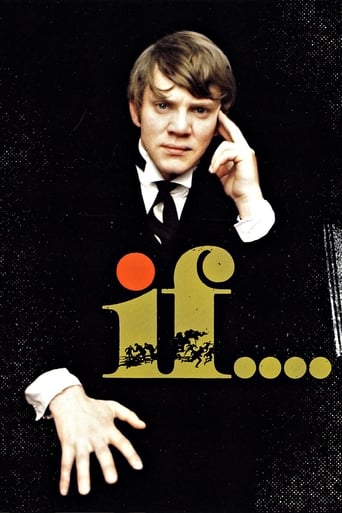Huievest
Instead, you get a movie that's enjoyable enough, but leaves you feeling like it could have been much, much more.
PiraBit
if their story seems completely bonkers, almost like a feverish work of fiction, you ain't heard nothing yet.
Ogosmith
Each character in this movie — down to the smallest one — is an individual rather than a type, prone to spontaneous changes of mood and sometimes amusing outbursts of pettiness or ill humor.
Hayleigh Joseph
This is ultimately a movie about the very bad things that can happen when we don't address our unease, when we just try to brush it off, whether that's to fit in or to preserve our self-image.
duffjerroldorg
I was in a sort of daze for hours after seeing If...for the first time in 2017. A work of art? Certainly but also a poetic historical document. After all the film dates back to 1968. 1968! when things were really changing and youth was taking a step forward, reminding the older generation that we'll be suffering the consequences of your thoughtlessness. So move over or else. I remember my father despising this film, he call it, propaganda. Propaganda?Maybe that's why I never saw it, until now. I was really moved by the film. Malcolm McDowell is the perfect man to incarnate the revolution that was about to come. It also made me look for all of Lindsay Anderson films - Just half a dozen feature films but my God! What an extraordinary director.
MissSimonetta
If... (1968) is the first of the unofficial Mick Travis trilogy from filmmaker Lindsay Anderson. It's a significant film in the 1960s counterculture and would come to be influential for other filmmakers in the decade to come. The film is very rooted in the late 1960s and acts as a sort of surreal snapshot of the social tensions of that era. Even today, If... plays well as a story about shaking off stifling tradition and challenging the status quo. Its ending shoot-out is shocking, especially in the light of the mass shootings which we hear of so often in the current century.That being said, there are some problems. If... is Anderson's most iconic movie but not necessarily his most powerful or focused. I felt the film sometimes loses itself toward the middle, dragging down the pacing. The switching between black-and-white film and color is distracting and needless (people try to find meaning in it, but the constant swapping is only there because the filmmakers had budget issues). The parts of If... feel much more satisfying than the whole.The ending has also provided issues with some viewers, who are ambivalent about Mick's (possibly symbolic more than literal) mass murder of the school faculty. Are Mick's actions justified by Anderson? Are we to condemn him? Is this conclusion the inevitable result of oppression and class-based struggle? It's all hard to pin down and has put off some people I have spoken to on the subject of If..., but for me, the questions raised by the bloody finale of the film only make it all the more interesting.O Lucky Man! is a better satire and This Sporting Life is a more poignant look at class struggle-- however, neither has the rousing, youthful exuberance of If... which makes it unique and provides much of its appeal to this day. For all its flaws, it remains one of Anderson's best loved movies.
SnoopyStyle
The student are returning to a British boarding school. Mick (Malcolm McDowell) and his friends are the constantly chaffing at the Whips, the upper classmen in charge of the students. The adults defers to the Whips. The lower classmen or Scums are menial servants for the Whips. It culminates in Mick and his friends being canned by the Whips. Mick gives his friends some bullets. Together they go on surreal shooting sprees.I have never been in a boarding school and it's a little tough to get a feel for this movie. This seems more like 'Lord of the Flies' with rules and traditions. Then it throws in some surrealism. This seems very unreal but I can't tell what's reasonable and what's not. I was actually glad when the movie goes fully surreal in the last act. The last half is definitely shocking and takes a left turn somewhere.
uroskin
Feature films set in English public schools are strangely timeless: their look, their feel, their atmosphere (and if they were in Odo-rama, probably their smell) are all very similar and, of course not forgetting the hazing, caning, abuse, humiliation, hierarchy, class structure and repression of all sexual orientations - all aimed at transmitting social strictures and structures to the next generation. Lindsay Anderson's "If... " doesn't depart from that template but the difference is that all those strictures are the film's main subject rather than its background to another story (as in, for instance "Another Country"). Malcolm McDowell's character resistance is existential rather than political and there was something marvellously 1960s about the movie, with its trippy escape into town ("out of bounds!"), street theatre and a joyride on a stolen motorbike, the hook up with the cafeteria girl and the dreams of free love. The ending is a little disappointing due to the cop-out into violence - the Sixties' hedonist culture did at the time reverberate through even the stodgiest of social institutions, for a while at least. The film switches back and forth between colour and black & white film stock, which gives it an alienating and interesting feel. (Prosaically, this was due to budget restrictions forcing some scenes to be filmed in black and white for technical reasons). Marvellous sound track with Sanctus from Missa Luba.

